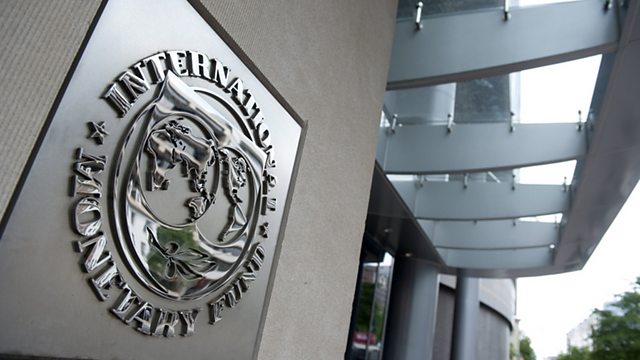Does it matter who heads the IMF?
The new head of the IMF is about to be selected. Their appointment comes at a time when the IMF is playing a pivotal role in the world economy, but will they really be able to change anything?
The grandees who sit on the executive board of the International Monetary Fund are about to decide which of the two candidates - Christine Lagarde, the French Finance Minister, or Agustin Carstens, Mexico's central bank boss - will get the top job.
Their choice has been the subject of exceptional attention and not just because of the sex scandal that forced the Fund's former head out of his job. More important is the pivotal role the IMF now plays.
The Fund is one of the few international institutions capable of trying to address the yawning trade deficits, out-of-kilter currencies and eye-watering debts that created the financial crisis. Just look at the central role the Fund has played in Europe's debt dramas.
So which of the two candidates is likely to become the IMF's new head and how are they likely to reshape this key world organisation? Justin Rowlatt interviews Andrew Walker, the Βι¶ΉΤΌΕΔ's Economics Correspondent.
But, whichever candidate wins, changing the course of a big organisation like the IMF can be very difficult.
All big bureaucracies develop their own momentum and the IMF is no exception. Indeed, a recent report by the IMF's watchdog, the Independent Evaluation Office found that many IMF staff and many of the national authorities they deal with felt pressure to "align their conclusions with IMF policies and positions". In short, it concludes that the IMF is biased.
Domenico Lombardi knows the International Monetary Fund very well. For many years he was a member of the executive board that runs the Fund. Justin Rowlatt asks him if he thinks either of the candidates will be actually able to reshape the IMF?
And finally, officially almost all of us will stop working by our mid-sisties. That's when those of us lucky enough to have pensions will be able to draw them for the first time. But the reality is likely to be rather different.
Many people to continue to work well into their seventies. This army of elderly employees rarely appears on the official records and is one reason the employment statistics are less reliable than they should be, as our regular commentator James Srodes has been discovering on a tour of the motels of America.
Last on
More episodes
Previous
Next
Broadcasts
- Fri 24 Jun 2011 07:32GMTΒι¶ΉΤΌΕΔ World Service Online
- Fri 24 Jun 2011 11:32GMTΒι¶ΉΤΌΕΔ World Service Online
Podcast
-
![]()
Business Daily
The daily drama of money and work from the Βι¶ΉΤΌΕΔ.


